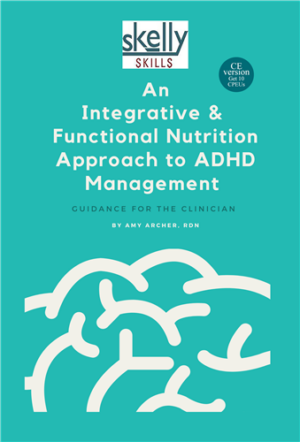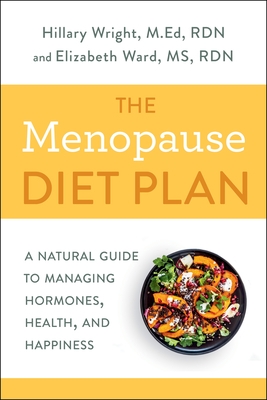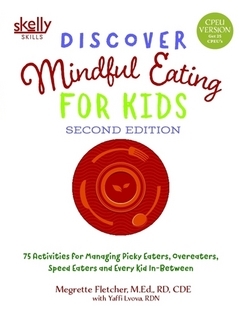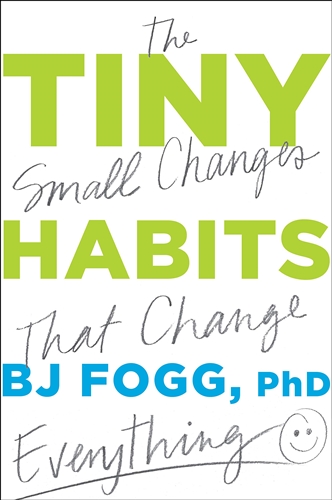

From: $150.00
Brand New! Learn how to help your clients optimize muscle and nutrition across the lifespan with this practical and eye-opening resource written by a functional RDN. Elevate the way you practice with research-backed actionable recommendations for your clients: from kids to the elderly. Features:
This course is CDR-approved for 23.75 CPEU for RD/RDNs and DTR/NDTRs, and CBDCE-approved for 23.75 CEU for CDCES’s. Please note course expiration date below.
CPEU/CEU: 23.75
Course Expiration Date: 10/04/2026. You have until that date to complete your CPEU Evaluation or Webinar Feedback Survey for this course.
Hold On To Your Muscle, Be Free of Disease: Optimize Your Muscle Mass to Battle Aging and Disease While Promoting Total Fitness and Weight Loss CE Course
Course Type: 720—Preapproved Self-Study Materials, Printed.
Includes CE Evaluation/Reporting Form: You will submit it online and receive your CE Certificate immediately.
Suggested Learning Level: 2
Muscle mass preservation is critical to disease prevention and healthy aging. Enhance your understanding of this complex topic and learn easily applied concepts and practical approaches. Learn how to apply the most up-to-date science on nutrition and exercise to fuel your muscles for overall health and longevity. Written by functional nutritionist Robert Iafelice, MS, RDN, this is a must-have resource to help you and your clients level up fitness and health!
Features:
Gain a comprehensive understanding of the connection between muscle mass and metabolic disease. Learn how to fuel your muscle mass with the ideal amount and timing of protein intake. Hold On to Your Muscle, Be Free of Disease: Optimize Your Muscle Mass to Battle Aging and Disease While Promoting Total Fitness and Weight Loss CE course provides practical suggestions to optimize muscle mass and health.
Published 2022. 269 pages. 23.75 CPEU CE Course. See the PIs tab for suggested Performance Indicators.
Discover Skelly Skills’ other functional and integrative nutrition CE courses.
Learn more about author Robert Iafelice, MS, RD, LDN.
CPEU/CEU: 23.75 NOTE: Course Expiration Date: 10/04/2026. You have until that date to complete your CPEU Evaluation or Webinar Feedback Survey for this course.
1.1.1 Participates and documents engagement in professional development activities to maintain and enhance competence.
1.1.2 Pursues and embraces opportunities to advance practice.
1.1.5 Integrates new knowledge and skills into practice.
2.1.1 Assesses the communication needs of individuals, groups and populations to provide effective communication.
2.2.3 Delivers accurate and credible messaging.
4.1 Demonstrates sound professional judgement and strategic thinking in practice.
4.1.1 Demonstrates effective problem solving and professional judgment to address needs.
4.1.2 Interprets and integrates evidence-based research and literature in decision-making.
4.1.3 Identifies misinformation and inaccurate information in order to inform decision-making.
4.2 Exercises critical thinking when faced with opportunities and challenges.
4.2.2 Reflects on own values, beliefs and biases.
4.2.3 Demonstrates insight concerning personal expertise and limitations.
4.2.5 Analyzes and synthesizes information and identifies new information, patterns and findings.
4.2.6 Integrates relevant information with previous learning, experience, professional knowledge, and current practice models.
4.2.8 Evaluates the effectiveness of plans and decisions and make adjustments when needed.
6.1.1 Identifies gaps in evidence to determine research priorities.
6.1.2 Uses established benchmarking to inform practice.
6.1.4 Defines and establishes appropriate research methodology approaches (e.g. quantitative and qualitative methods).
6.2.3 Analyzes and interprets data to form valid conclusions and to make recommendations.
6.3.1 Accurately and ethically shares research findings with a variety of audiences.
6.3.2 Utilizes innovative ways to disseminate research findings considering the target audiences.
6.4.2 Demonstrates serious inquiry, examination, and experimentation aimed at the discovery and interpretation of knowledge, or the revision of guidelines, theories, policies or laws.
6.8.1 Masters and maintains current and evidence-based knowledge within subject areas.
7.2.1 Applies knowledge of biological, environmental, physical or chemical properties that may cause food and water to be unsafe for human consumption.
8.1 Interprets and applies current food and nutrition science in nutrition and dietetics practice.
8.1.1 Interprets and applies evidence-based comparative standards for determining nutritional needs.
8.1.2 Applies knowledge of food and nutrition as well as the biological, physical and social sciences in practice.
8.1.4 Integrates knowledge of macro- and micronutrients for digestion, absorption and metabolism throughout the lifespan in practice.
8.1.5 Applies medical nutrition therapy in disease prevention and management.
8.2 Applies current knowledge and skill in the management of a variety of diseases and clinical conditions.
8.2.1 Assesses the physical, social and cultural needs of the individual, group, community or population.
8.2.2 Applies knowledge of health determinants when planning, developing and implementing services, programs, meal plans and menus.
8.2.3 Analyzes new information and how it impacts medical nutrition therapy.
8.2.4 Integrates new knowledge of disease states and clinical conditions into practice.
8.3 Applies the required knowledge and skill for safe and effective sports nutrition and dietetics practice and exercise training.
8.3.1 Discusses with clients the Physical Activity (PA) Guidelines for Americans and the relationships between exercise, health, and disease prevention.
8.3.2 For RDNs who hold advanced certification in exercise physiology or sports dietetics, applies advanced principles from the PA Guidelines for Americans (e.g., intensity, frequency,
duration, overload, progression, specificity, METs, and METminutes).
8.3.3 Collects, analyzes, and interprets body composition fitness and exercise data to optimize physical performance.
8.3.5 Provides general physical activity guidance to clients based on the Physical Activity (PA) Guidelines for Americans.
8.3.6 Evaluates sport/dietary supplements (safety, legality, efficacy, quality, application to sport) and considers evidence-based reviews and testing by reputable third parties before recommending sports/dietary supplements.
8.3.7 Demonstrates an understanding of the ways in which progressive exercise training influences nutrition needs to support positive metabolic, structural, and immunological adaptations.
8.4 Critically evaluates the safety and efficacy of integrative and functional medicine approaches and interventions.
8.4.1 Gains an understanding of integrative and functional medicine models and interventions and how these models and interventions are applied to nutrition and dietetics service.
8.4.2 Critically evaluates the credibility of integrative and functional medicine research and literature, using evidence-based criteria, to respond to inquiries and to determine the appropriateness of incorporating these interventions into nutrition care plans.
8.4.3 Identifies research gaps to support conscious decision-making.
8.4.4 Identifies safety issues, risks, efficacies, benefits and limitations of interventions.
9.5 Evaluates the achieved learning and delivery methods when delivering education to individuals, groups and populations.
9.6.1 Assesses client/patient nutritional needs and appropriateness of the counseling.
10.2.1 Selects valid and reliable tools to conduct comprehensive nutrition assessments.
10.2.2 Interviews clients/patients and reviews health records to collect information about medical history and food and nutrition intake.
10.2.3 Collects information related to client/patient use of medications, dietary supplements and integrative and functional medicines to identify potential adverse drug and nutrient interaction.
10.2.4 Assesses client/patient physical activity levels to determine nutrition requirements.
10.2.6 Collects and analyzes anthropometric and body composition data to contribute to nutrition diagnoses.
10.3.1 Establishes goals and desired outcomes in collaboration with clients/patients.
10.3.4 Selects interventions intended to resolve or improve nutrition diagnoses.
10.3.6 Develops nutrition prescriptions to communicate clients’/patients’ customized diet and nutrition needs.
10.4.1 Identifies classifications of nutraceutical pharmacological agents and the action on the body.
10.4.3 Identifies potential food-nutrient drug interactions based on physiological responses to pharmacological agents and takes appropriate action.
10.4.4 Considers client/patient factors, nutritional impacts, indications, side effects, contraindications, benefits, risks, alternatives and foundational sciences when prescribing, recommending or administering nutrition-related drug therapy.
10.5.1 Reevaluates and adjusts plans of care to support client/patient health goals.
10.5.2 Monitors and identifies factors affecting client/patient progress in meeting goals.
10.5.3 Adjusts interventions based on client/patient progress in meeting established goals.
10.5.4 Establishes new goals and nutrition care plans when original or interim goals are met.
12.2.1 Identifies determinants of health and influences on population health status.
12.3.6 Prioritizes goals and objectives based on health problems and health problem changeability.
12.4.2 Applies knowledge of local and global food markets, food production systems and nutrition regulations.
Only logged in customers who have purchased this product may leave a review.
Skelly Skills is a provider of continuing education for dietitians (RD/RDNs), certified diabetes care and education specialists (CDCESs), registered nurses (RNs) and diet technicians, registered (DTR/NDTR). We provide CPE, (often called CEU, CE, and CPEU) for all of these groups, and all of our courses are approved for CE by the Commission on Dietetic Registration (CDR) and the CBDCE for CDCESs. Skelly Skills receives no commercial support and does not accept advertising or sponsorship of any kind.

CPEU/CEU: 10

CPEU/CEU: 15

CPEU/CEU: 25

CPEU/CEU: 21


Purchase your webinar and receive a link to the webinar immediately.
Watch your webinar and then submit the CE Feedback Survey form by the course expiration date.
After submitting your CE Feedback Survey, you will be able to download your CPEU/CEU certificate as a pdf and keep for your records.

We use cookies to ensure you get the best experience. By using our website or clicking "accept", you consent to cookies.
Laura Kunces, PhD, RD –
Interesting, evidence-based read that will help any dietitian—clinical, research, consultant, and beyond– understand how their patients’ muscle affects the human body and the risk and relationship to chronic disease. The book is part of an RD/RDN CEU course that can support the holistic health of any client. Would definitely recommend it to my colleagues!
Renaye Razewski, RDN, Outpatient Dietitian, Charlotte, NC –
This course provided valuable insight into how to improve the health of patients I work with facing aging and muscle loss. It provided accurate science and useful tips to share with my patients.
Deb Konkle, MS, RD, IFNCP, Licensed Nutritionist in Private Practice, Sudbury, MA –
I gained specific knowledge about the biochemical pathways involved in mitigating sarcopenia, and the intricate relationship between muscle and longevity. Having specific talking points to use when working with patients is extremely helpful to designing a comprehensive diet and exercise program. There are so many more tidbits learned. I will use this book as a handy resource regularly.
Tiffany Hull, MS, RDN/LD, FAND, Edmond, OK –
This course was excellent with easy to utilize information. The education provided was valuable as we are an aging society and prevention of health complications related to muscle loss with aging should be a priority. Additionally, the education provided specific, science backed action items which can be applied to people of all ages to provide the benefits of maintaining healthy muscle mass.
Michael Gorski, RDN, Private Practice Dietitian, Verona, WI –
The info presented in this book is less common today than others, but overall it is more impactful than current nutrition guidance. The focus on protein, resistance training (especially the intensity) and some of the dietary advice was excellent. Science-based, clear, concise, and actionable. Loved the book overall!